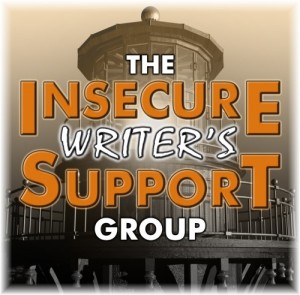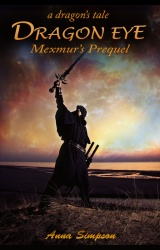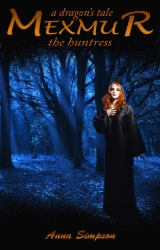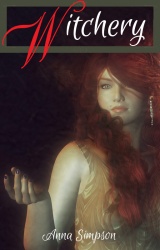This post was written for the Insecure Writer’s Support Group where we share our encouragement or insecurities on the first Wednesday of the month, to join the group or find out more click here.
~~~oOo~~~
co-hosts
Janet Alcorn | Pat Garcia | Natalie Aguirre | Shannon Lawrence
OPTIONAL IWSG DAY QUESTION:
Have you ever been conflicted about writing a story or adding a scene to a story? How did you decide to write it or not?
I’m going to answer: how did I decide to write a scene or not
When I started writing, I discovered yWriter5, a free desktop app, for—you guessed it—writers. It was all new to me and the app taught me about scene- sequel method through headings, etc. Another golden tidbit was the option to exclude a scene.
sequel method through headings, etc. Another golden tidbit was the option to exclude a scene.
I didn’t think anything of it way back when.
But this month’s question got me thinking. Do all scenes have to be included, and if a writer leaves them out, is it always because they are unnecessary?
 I think not. Sometimes they can be left out, so the characters can do what everyone else does—gossip.
I think not. Sometimes they can be left out, so the characters can do what everyone else does—gossip.
Picture this, a breakup scene in the middle of a restaurant. None of the story’s cast was there. But someone was, and spread a fair share of it with a few friends. Who told a few more friends and so on…
What if a cast member is tapped into the local grapevine and shares what they learn with the rest of the main characters. That kind of gossip could create chaos.
Not all scenes are meant to be included. Some good ones can fuel the characters from off-stage and lead the cast down blind alleys, fuel emotion, and basically mess with their minds.
Now, I call that fun.
My Question to You
Ever do this? How do you mess with your characters?
For those not sure if they should delete a scene, here are some links that may help:











Mess with their minds – LOL!
I think my evil side is showing. hehehe
Love it! Gossip travels in small-towns and I’ve used that in my books so far. :I think there is power in what you’ve shared – going to have to put some thought into how to use this idea! thanks 🙂
It can be really, really fun. Think of the lies, the hyperbole, and bared-faced truth that can be slung around. 😉
If a scene occurs to me, I usually include it as I trust my unconscious mind which urged it to be written … I find facets to characters that enrich the story and leads to surprising twists I would not have thought of if I had weeded it out. 🙂
🙂
To each their own. lol
You got us some great tips. Thanks for the references. I would love to check them all out.
Sure. I need a reference, so I’ll ask myself the right questions before deleting or moving a scene into a folder. 🙂
I agree. Sometimes you write a scene and it doesn’t need to stay in the story, but you still needed to write it to figure something out.
Exactly. 🙂
So true what you said about not all scenes are meant to be included. The cutting room floor is often where some excellent material winds up–not because they were inherently bad, but because they didn’t serve the main story! Good post.
Thanks, Lee. 🙂
Something that bothers me with a lot of Sci-Fi/Fantasy these days is that there seems to be this compulsive need to show everything: every fight and battle must be included in all its epic and gory detail. But I think there’s a lot of value in letting certain things happen “off stage,” so to speak. Gossip and rumors can amp up the tension in a story so well.
Definitely can. 🙂
Love your idea: a scene ‘behind the scene’ but witnessed by someone and gossiped about later. This can take your story in so many different directions, depending on who hears what, as the gossips tend to morph with multiple reiterations.
Ah, you get it. So much potential. Bwah, bwah, ha. 😉
I always end up with a thick (virtually) file of cut scenes for each manuscript–good fodder for future stories. How do I mess with my characters’ minds? By having their love interest or other characters rip the scab off old wounds.
Ah, nothing is truly left behind. Nice. 🙂
Gossip (hearsay in the legal world) is a great way to introduce both information and disinformation. An unreliable narrator need not have evil motives, either. As far as cutting scenes, I do it all the time, not because I’m conflicted, but because they don’t work.
Like minds. 😉
I wrote a scene from the killer’s pov so I could figure out a timeline. I’ll use bits and pieces of it later with the police. It helped.
I can see how that would work. Stealing it. hehehe
Agreed. When handled well, this can be really effective and for me helps to suspend disbelief and build suspense too. Because, I’m like okay what really happened??? maybe, you never know. Great take on the prompt.
Thanks, Anne. 🙂
Love that idea! Sometimes figuring out the best angle to show what you want from, to get the greatest effect, is so much fun! @samanthabwriter from
Balancing Act
Thanks. I thought it was pretty brilliant, which isn’t like me at all. hehehe
Thanks for the tools, Anna. Your post is very helpful. I wrote a firefight in east London with my protagonist and his two buddies against a three mobsters. I loved that scene. It was something I was truly proud of it. My kids thought it was excellent. My male beta-readers loved it. A year later, I finally cut it, and actually had to take painkillers and go to bed. Yes, I saved it, but it’s never fit anything else. Haha. ha
ha, bizarre moment
I’m sorry. I bet that hurt. What we do for our craft can really suck.
I think it adds another interesting element to a story to have things happening or that have happened elsewhere. You can bring in those other scenes through devices like letters, newspaper headlines, overheard conversations, photographs or recordings, or by having the character have flashbacks or similar. That adds depth to a story.
Especially when in first-person. They can’t be everywhere at once. 😉
Hi,
I think any writer who writes has the decision to write the scenes that go within their books like they want. That’s my feeling. They are too many people judging writers and it gets worse when writers start judging themselves.
Wishing you a lovely day.
Shalom aleichem
No judgement from me. I expect different approaches and enjoy the variety. 🙂
I like to give my characters mysteries they need to solve, then immediately make it (seemingly) impossible for them to solve.
That sounds fun, Ken. 🙂
Sometimes my story changes along the way and then there are scenes that no longer have relevance. I try to give my character a goal, and then put as many brick walls as I can in front of them.
lol… Brick walls definitely do the job.
I like your approach! Thanks for the links–will check them out.
You’re welcome. 🙂
Sounds like a fun perspective, Anna!
Cause chaos and mess with their minds… that’s definitely a great way to spice up the story.
Glad you agree, Mish. 🙂
Thanks for the links–I’ve saved them to read when I have a few minutes. My early drafts often end up with extraneous characters, so a lot of my early cuts are scenes with people who don’t need to be in the story. I keep them, of course–the character who got cut from the team might become the star of my next story.
Oh, I like that. The next star is born. 😉
I’m enjoying this idea of ‘off-stage’, and need to remember to use it to set the scene for myself so I know what’s going on, but only use the essence of it in the actual story to carry it forward. And thank you for the excellent tips 👍
You’re welcome, Heather. 🙂
I like that interpretation of the question. I’ve cut tons of scenes out in order to tighten bloated stories, but I didn’t think about those when I read the question. I hope we both get inspired to write soon, Anna!
Yes, inspiration sounds great. 🙂
It’s more like the characters mess with me. I was writing a segment for a scene and the characters hijacked the story and included a new character. I’ve no idea where they are taking me. Odds are, parts of the scene will be deleted. The power of being the writer LOL.
I love it. You are at their mercy. hehehe
I certainly am!
Now there’s an interesting twist. There are always scenes that need to be cut for whatever reason, but I hadn’t thought about them quite that way before. Messing with the characters is fun. They drive me nuts often enough by going off and doing their own thing when I’m not expecting it. Turnabout is fair play.
Isn’t it though. hehehe
Yay! So glad you’re writing again.
I am and was wondering–worried really–if I’d ever get to it again. 🙂